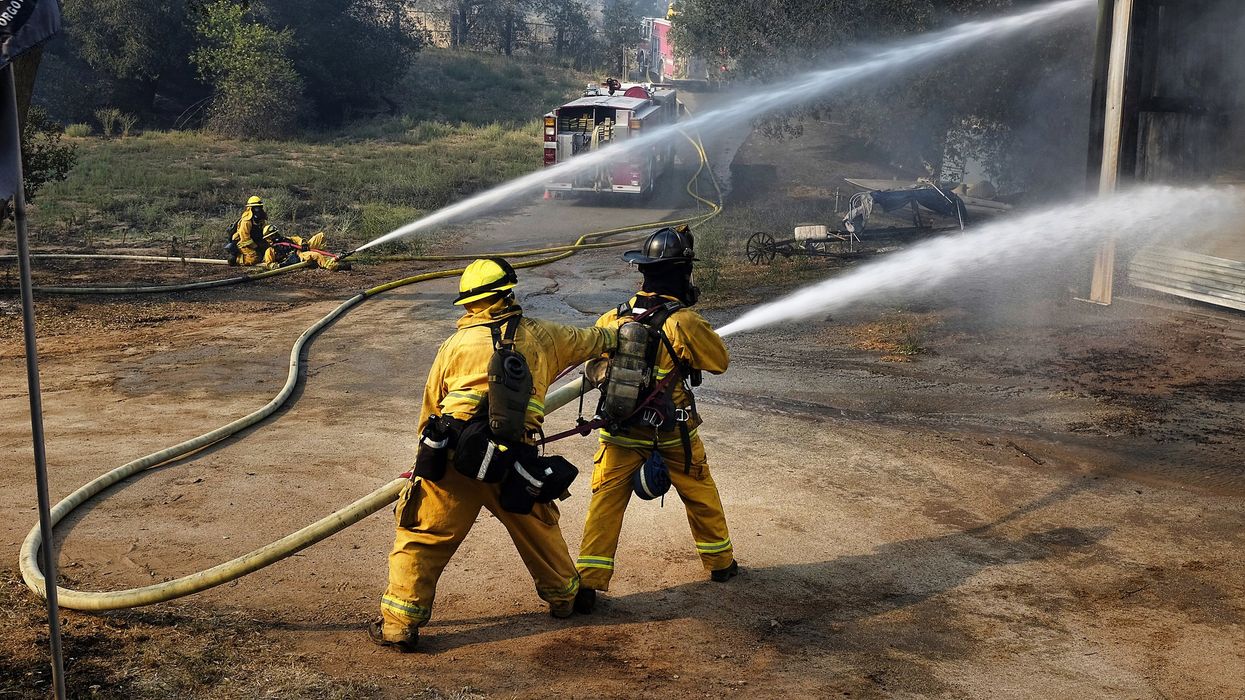As a native Californian and a passionate homeless advocate, my heart shattered when I witnessed the devasting wildfires that ravaged the state I call home. For those already vulnerable, facing homelessness or housing insecurity, the wildfires are a cruel reminder of how fragile stability can be. The Los Angeles fires have forced evacuations of more than 200,000 people, displacing families and individuals from the only place they consider home. Shelters quickly filled to capacity, and resources that were already strained became nearly nonexistent. The lack of a solid foundation can turn a natural disaster into an inescapable cycle of hardship and despair.
California's homelessness crisis is multifaceted and severely impacts individuals and families across the state. With 181,399 unhoused individuals, of whom 68% are unsheltered, it is clear that the current resources available are grossly inadequate. This situation not only showcases a systemic failure to provide necessary support but also amplifies the vulnerability of these individuals, especially in the face of natural disasters such as the wildfires.
The nearly 71,131 emergency and transitional beds fall significantly short of meeting the needs of those experiencing homelessness. These facilities are often overwhelmed, lacking the capacity to accommodate the surge of individuals who may seek refuge during emergencies. Additionally, many of these shelters may not be equipped with the resources, infrastructure, or care needed for individuals with unique requirements, such as those dealing with mental health issues, substance use disorders, or families with children. This shortfall can lead to dire outcomes for those affected, as they have nowhere safe to go during times of crisis.
Moreover, the availability of beds in jails— 83,000 across 125 facilities —further emphasizes a troubling trend in California's approach to homelessness. Instead of providing supportive housing and resources that could help stabilize individuals, the state often resorts to criminalizing those in vulnerable situations. This approach not only fails to address the root causes of homelessness but also exacerbates the problem, pushing individuals deeper into a cycle of poverty, trauma, and incarceration.
The focus on punitive measures instead of preventive solutions not only strains the judicial system but also neglects the comprehensive care that the unhoused need. Investing in mental health services, addiction recovery programs, job training, and accessible housing solutions is imperative for reversing these harmful trends.
Furthermore, the interplay between homelessness and natural disasters cannot be overlooked. As climate change continues contributing to increasing frequency and intensity of wildfires, floods, and other disasters, the unhoused population is disproportionately affected. Many do not have access to transportation and may be unable to evacuate in a timely manner, putting their lives at greater risk.
In a state as affluent and innovative as California, it is unacceptable that so many of our residents live without a secure roof over their heads, especially during times of crisis. We owe it to ourselves and each other to foster resilience not just in our communities but within the very systems that must protect the most vulnerable among us. One where safety, stability, and dignity are not privileges, but rights for every individual, regardless of their circumstances.
During the worst of the fires, the sight of crows flying to safety served as a poignant metaphor, highlighting a community yearning for a way out. While political rivalry creates inaction, the outpouring of support and compassion from neighbors demonstrates an unwavering resolve to reclaim their streets from despair. Community groups, volunteers, and local organizations are stepping in where the city falls short, providing food, shelter, and a listening ear to those in need.
In this moment of crisis, the people of California are becoming the forerunners of change by putting community first. As crows take flight to escape danger, so too do community members rise to the challenge, pushing for solutions that foster dignity and hope. The way Californians put each other first was a breathtaking scene and a beautiful reminder that when government fails to protect its most vulnerable, it is the love for our community that can pave the way toward lasting change.
Asha Wasuge is a fierce professional advocate for the unhoused population and a Public Voices Fellow in Domestic Violence and Economic Security with the OpEd Project.




















Trump & Hegseth gave Mark Kelly a huge 2028 gift